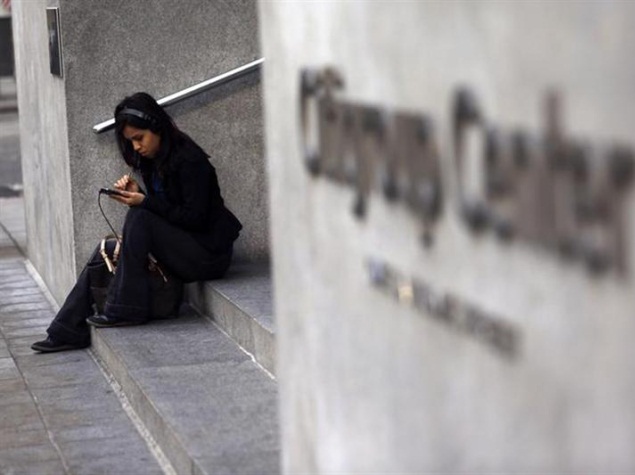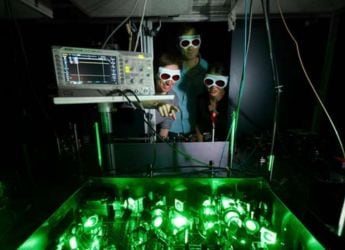- Home
- Mobiles
- Mobiles News
- Technology that can deliver 'NSA proof' smartphones
Technology that can deliver 'NSA proof' smartphones

Currently available quantum cryptography technology is bulky, expensive and limited to fixed physical locations - often server rooms in a bank.
The University of Bristol has shown how it is possible to reduce these bulky and expensive resources so that a client requires only the integration of an optical chip into a mobile handset.
"With much attention currently focused on privacy and information security, people are looking to quantum cryptography as a solution since its security is guaranteed by the laws of physics," said Anthony Laing from centre for quantum photonics at University of Bristol.
"Our work shows that quantum cryptography need not be limited to large corporations, but could be made available to members of the general public. The next step is to take our scheme out of the lab and deploy it in a real communications network," he explained.
The scheme relies on the breakthrough protocol that allows the robust exchange of quantum information through an unstable environment.
The system uses photons - single particles of light - as the information carrier and the scheme relies on the integrated quantum circuits.
These tiny microchips are crucial for the widespread adoption of secure quantum communications technologies.
"This heralds a new dawn for secure mobile banking, online commerce, and information exchange and could shortly lead to the production of the first 'NSA proof' mobile phone," Laing noted.
The research was published in the journal Physical Review Letters.
Catch the latest from the Consumer Electronics Show on Gadgets 360, at our CES 2026 hub.
Related Stories
- Samsung Galaxy Unpacked 2025
- ChatGPT
- Redmi Note 14 Pro+
- iPhone 16
- Apple Vision Pro
- Oneplus 12
- OnePlus Nord CE 3 Lite 5G
- iPhone 13
- Xiaomi 14 Pro
- Oppo Find N3
- Tecno Spark Go (2023)
- Realme V30
- Best Phones Under 25000
- Samsung Galaxy S24 Series
- Cryptocurrency
- iQoo 12
- Samsung Galaxy S24 Ultra
- Giottus
- Samsung Galaxy Z Flip 5
- Apple 'Scary Fast'
- Housefull 5
- GoPro Hero 12 Black Review
- Invincible Season 2
- JioGlass
- HD Ready TV
- Laptop Under 50000
- Smartwatch Under 10000
- Latest Mobile Phones
- Compare Phones
- Red Magic 11 Air
- Honor Magic 8 RSR Porsche Design
- Honor Magic 8 Pro Air
- Infinix Note Edge
- Lava Blaze Duo 3
- Tecno Spark Go 3
- iQOO Z11 Turbo
- OPPO A6c
- Lenovo Yoga Slim 7x (2025)
- Lenovo Yoga Slim 7a
- Lenovo Idea Tab Plus
- Realme Pad 3
- Moto Watch
- Garmin Quatix 8 Pro
- Haier H5E Series
- Acerpure Nitro Z Series 100-inch QLED TV
- Asus ROG Ally
- Nintendo Switch Lite
- Haier 1.6 Ton 5 Star Inverter Split AC (HSU19G-MZAID5BN-INV)
- Haier 1.6 Ton 5 Star Inverter Split AC (HSU19G-MZAIM5BN-INV)







![[Sponsored] Haier C90 OLED TV | Dolby Vision IQ, 144Hz OLED and Google TV in Action](https://www.gadgets360.com/static/mobile/images/spacer.png)









